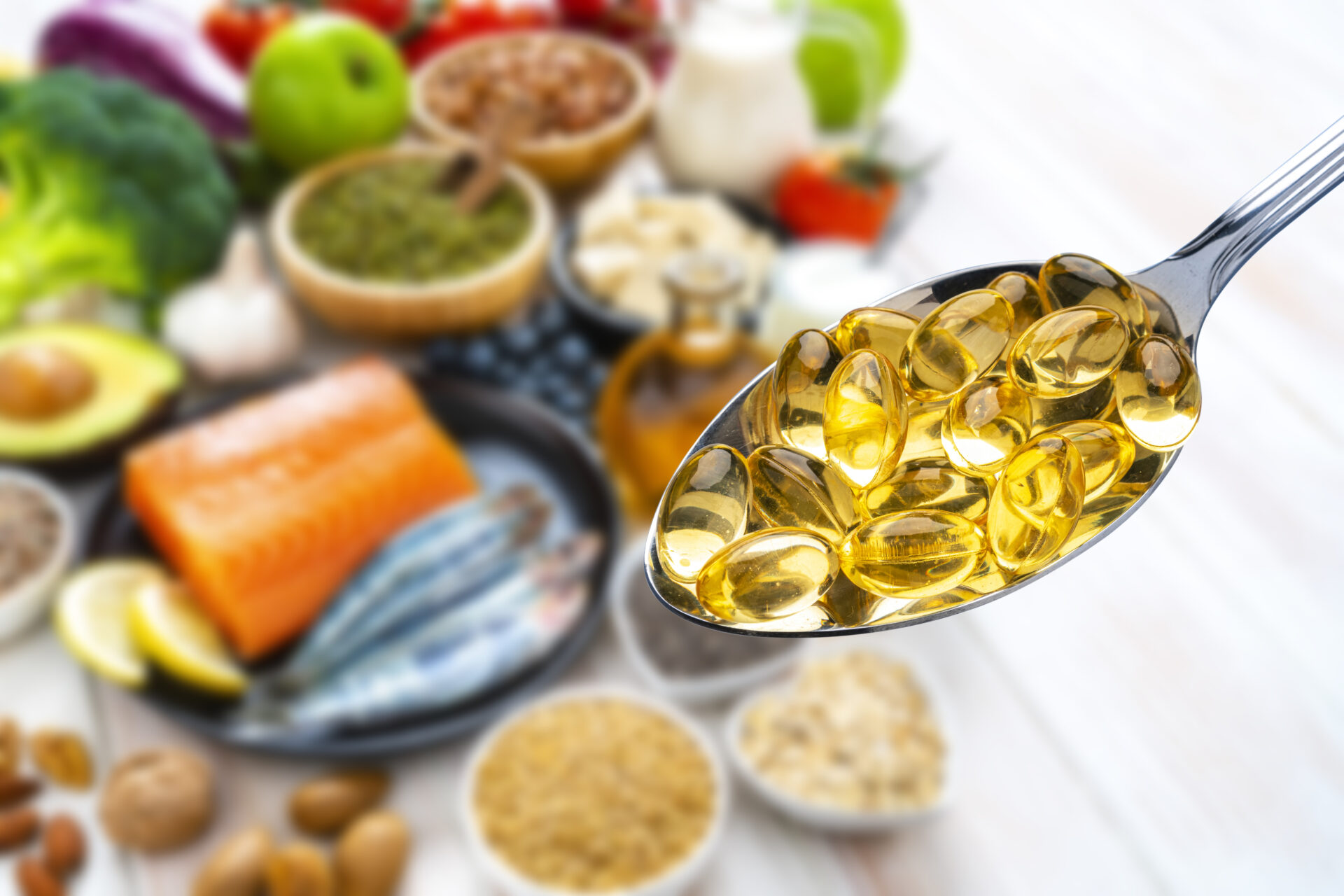Nutraceutics is a discipline born in the late 20th century. It originates from the blending of nutrition science and pharmaceutical science and offers an innovative approach to treating human well-being through nutrition.
At Flarer, we have long been involved in the distribution of nutraceuticals. We support R&D laboratories thanks to our expertise in dietary supplements and foods for particular medical purposes, with a focus on maintaining a first-rate standard of quality.
This article will thoroughly explore this discipline, examine its products, and discuss its most common uses.
What is meant by nutraceuticals?
The meaning of the term nutraceutical comes from the combination of “pharmaceutical” and “nutrition.” It was coined by U.S. biochemist Stephen De Felice to refer to foods, or parts of foods, with proven health benefits and effective in preventing and treating chronic diseases.
What is the primary goal of nutraceuticals? The discipline aims to investigate the beneficial effects of certain substances in foods, how they work, and outline possible therapeutic applications. In recent decades, research projects concerning this discipline have increased due to a growing awareness of the importance of a proper diet and a consequent increase in interest from the scientific community.
What are nutraceuticals?
The products included in the nutraceutical field are generally substances derived from plants, foods, or microbial sources. Although most natural nutraceuticals are of plant or animal origin, many, such as vitamins or minerals, can also be produced by chemical synthesis.
However, it is essential to remember that nutraceuticals are not a homogeneous category, as the term refers to products that differ vastly from each other. In addition, in most cases, nutraceuticals cannot be classified as drugs: they are not subject to all the testing steps required for drug approval, but this does not exempt them from thorough controls.
Depending on the country of reference, approval from a competent institution based on detailed data and a significant history of scientific studies is required for the product to be marketable. In Italy, the reference bodies are the EFSA (European Food Safety Authority) and the Ministry of Health.
Despite this, the term “nutraceutical” is not internationally recognized, which is why it is often associated with dietary supplements or functional foods.
Given the breadth of the category, the range of nutraceutical products for which Flarer offers its services is equally diverse. We offer scouting, regulatory support, analysis, and logistics services for:
- plant-derived functional compounds;
- extracts in supercriticalCO2;
- plant extracts: dry, wet and titrated;
- patented actives/blends;
- functional sugars;
- liposomal extracts;
- proteins and amino acids;
- vitamins;
- flavorings and dyes;
- actives and ancillary substances for medical devices.

The differences between nutraceuticals, functional foods, and dietary supplements
Several definitions of nutraceuticals make the distinction between the terms “functional foods” and “dietary supplements” particularly complex.
Functional foods can generally be defined as food products with additives that have beneficial physiological effects on the individual consuming them. In cases where nutraceuticals reflect these characteristics, the terms nutraceuticals and functional foods can be synonyms. Conversely, dietary supplements refer to products whose primary purpose is to enrich the diet in response to possible nutritional deficiencies; however, they, too, may contain active nutraceutical ingredients.
Because the definitions are vague, the three terms can often refer to the same product. In any case, the term nutraceutical, despite not being defined by any legislative body, is generally used to refer to all substances derived from food sources that have a beneficial effect on health and contribute to the treatment of certain diseases.
Nutraceuticals: here are some possible uses
Nutraceuticals can be used for a wide range of purposes, including:
- prevention and treatment of chronic diseases;
- improvement of general health;
- delaying the aging process;
- support of specific bodily functions.
It is essential to note that since these products are not drugs, it is not possible to consider them a substitute for drug therapy. The efficacy of the individual product depends on its active ingredient and the available scientific literature supporting its beneficial effects; moreover, its presence on the market does not guarantee its effectiveness.
Therefore, the possible uses vary according to the individual product. Here are some examples of nutraceuticals:
- Fermented red rice. Some scientific studies show its effectiveness in treating dyslipidemia due to its cholesterol-lowering effect.
- Omega-3 polyunsaturated fatty acids. They are anti-inflammatory, counteract the cellular aging process, play an important role in preventing cardiovascular diseases, and strengthen the immune system.
- Berberine. It has anti-microbial, anti-tumor, immune-modulating, cholesterol-lowering, hypoglycemic properties and several beneficial effects on the cardiovascular system.
Where are nutraceuticals marketed?
Considering the broadness of the category, where are nutraceuticals marketed? The answer changes depending on the product’s nature and the regulations required for sale.
In general, nutraceuticals can be purchased by the end consumer in pharmacies as supplements or over-the-counter products, in licensed stores, and in stores specializing in the natural products trade, such as herbalists and supermarkets. They can also be integrated by incorporating foods containing them into one’s diet.
A doctor’s prescription is generally not required to purchase them, but nutraceuticals may be marketed as medicines in some cases. In such a situation, the term used is phytotherapeutic drugs, which indicates medicines of plant origin with an unproven but plausible level of efficacy that, according to European regulations, must be supported by more than 30 years of research. In the latter case, they can only be purchased in pharmacies and under prescription.
Nutraceuticals: Flarer’s commitment
What is Flarer’s role in the field of Nutraceuticals? Thanks to our 30-year presence in the pharmaceuticals industry, we have developed strong know-how by consolidating our presence in more than 20 countries with more than 100 partnerships, including the field of Nutraceuticals.
This expertise allows us to offer an end-to-end service that optimizes the processes of scouting, transportation, and distribution of high-quality nutraceutical raw materials. The solutions provided by our consultants are tailored to the customer, who is supported along all stages of the supply chain, from scouting to delivery, and compliant with all existing regulatory regulations.
Our interest in the field of nutraceuticals is motivated by the steady growth of this scientific branch, which stems from the tradition in all human cultures of caring for one’s health through a varied and balanced diet.
In conclusion, nutraceuticals offer a plethora of possibilities for further in-depth study by the scientific community and increasingly attract the interest of experts and the market; the potential is significant and could hold surprises and evolutions capable of innovating the future concept of treatment.
Contact us to learn more about the distribution of nutraceutical raw materials and consult our product portfolio.
